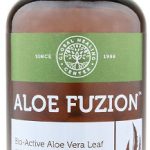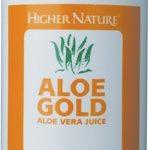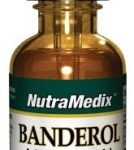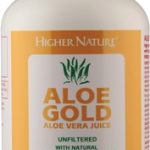The immune system’s a wonderful thing – it’s your body’s very own built-in protection system. It fights the good fight against a plethora of harmful organisms and toxic chemicals that you consume thanks to the food you eat, the water you drink and the air you breathe in. And yet, to do this to its maximum potential, to keep your body as safe as it can, it needs you to properly support it so it can function to its optimum level. How? Well, the following are all ways in which you’d be wise to invest time and effort to aid your immune system:
-
- Eating healthily – some foods steal energy and destroy your immune system. Foods to avoid include processed foods and those with unnatural chemicals like added flavourings, refined sugars, and neurotoxins like MSG. Avoid soda, which is one of the top five foods that destroy your immune system. Instead, look for organic fruits and vegetables that are rich in antioxidants, B vitamins and vitamins A, C, and D. Some excellent choices are blueberries, garlic, kale, broccoli, spinach, lemons, eggplant, pomegranate, and avocado. For fruits and vegetables, it’s important to buy organic. If organic isn’t available, give your fruits and veggies a good scrub to eliminate removable residue. Raw, vegan foods are ideal, but if you do choose a vegan lifestyle, make sure to include extra B12 in your diet.
- Getting exercise – yes, that’s right; exercise is one of the best methods to boost immune system vitality. It improves your overall health, increases oxygen intake and lung capacity, and gets your metabolism going. On top of that, it promotes a healthy heart and good circulation. Find the best exercise routine for your lifestyle; keep in mind that consistency is a must.
- Stress management – stress does more than make you anxious or angry, it aggravates your immune system and increases inflammation. Look for ways to reduce stress at home and at work. One way to avoid stress is by not holding onto problems. Get it out, talk to someone who will listen. Meditation is another great way to manage stress and can help you reach mind and body harmony and mental discipline.
- Nutritional support – even natural foods do not provide all the vitamins, minerals, and nutrients we need. Over-farming, fertilizers, and pesticides have drained much of the nutrient content from the land. As organic farming picks up, nutrients will return, but it will take time. But, even before the soil was depleted of nutrients, alternative health practitioners recognized that people needed herbs and tonics to supplement their diet and support their health and immune system, especially as they aged. Here are a few of the best.
- Echinacea – traditional medicines have used Echinacea for centuries and research indicates it supports a healthy immune response and helps fight off colds and flu.
- Oregano oil – a study by the Georgetown University Medical Center reported oregano oil was great for fighting off harmful organisms.
- Ginseng – this adaptogen helps the body respond to stress and keeps your immune system functioning normally.
- Lemon – high in vitamin C, lemon is one of the most potent fruits you can take to fight illness. Many people recommend taking the juice of one half lemon in a cup of warm water every morning to encourage good health.
- Garlic – studies show people who eat garlic regularly have fewer colds than those who don’t.
- Probiotics – friendly bacteria, aka probiotics, help keep harmful organisms from taking hold. Studies suggest two of the best strains are Lactobacillus helveticus and Bifidobacterium bifidum.
Alternative ways to help the immune system
In recent years, researchers have taken special interest in aloe vera. Studies show some aloe species contain two powerful substances that help the immune system – acemannan and aloctin A. The active components in aloe vera fight harmful organisms and have antioxidant effects that protect cells from damage. Aloe Fuzion – a high-quality immunity boost supplement, as well as the other following products, is available through The Finchley Clinic:
 Aloe Fuzion – a highly concentrated formula that contains the most bio-available, certified-organic aloe with the highest amount of acemannan made today. Acemannan is the active ingredient that supports the immune system, soothes irritation, and encourages a healthy gut environment. Aloe Fuzion is aloin free and does not act as a harsh laxative, unlike many whole leaf aloe products.
Aloe Fuzion – a highly concentrated formula that contains the most bio-available, certified-organic aloe with the highest amount of acemannan made today. Acemannan is the active ingredient that supports the immune system, soothes irritation, and encourages a healthy gut environment. Aloe Fuzion is aloin free and does not act as a harsh laxative, unlike many whole leaf aloe products.
 Aloe Gold Natural – rich in sulphur and 200 other nutrients, it helps to maintain healthy digestion, provides important nutrients to the cells lining the gut and helps maintain healthy skin and immune function.
Aloe Gold Natural – rich in sulphur and 200 other nutrients, it helps to maintain healthy digestion, provides important nutrients to the cells lining the gut and helps maintain healthy skin and immune function.
 Banderol – this supplement may not just help support the immune system but can also be used for candida management and microbial defence; also used by people with Lyme disease and the co-infections associated with it.
Banderol – this supplement may not just help support the immune system but can also be used for candida management and microbial defence; also used by people with Lyme disease and the co-infections associated with it.



